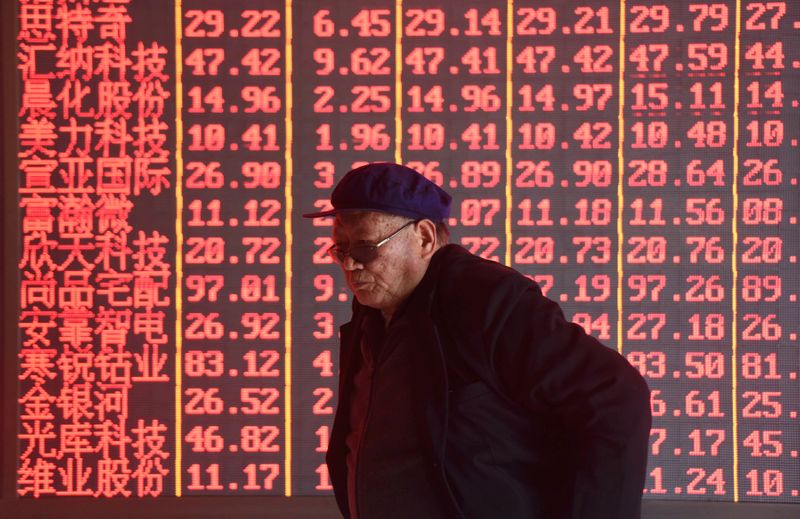By Patturaja Murugaboopathy and Gaurav Dogra
(Reuters) - Asian equities recorded their biggest foreign outflow in at least 12 years in March, hit by the coronavirus pandemic and its impact on businesses across the region, with most factories shuttered to contain its spread.
Overseas investors sold a net $33.3 billion worth of regional equities last month, the highest since at least January 2008, data from stock exchanges in India, Indonesia, the Philippines, South Korea, Taiwan, Thailand and Vietnam showed.
(Graphic: Foreign investments in Asian equities link: https://fingfx.thomsonreuters.com/gfx/mkt/jbyvrladveo/Foreign%20investments%20in%20Asian%20equities.jpg)
A shortage of dollars as many institutional investors scrambled to safer currencies to hedge against volatility also hit flows into emerging Asian equities, analysts said.
(Graphic: Combined foreign investments in Asian equities link: https://fingfx.thomsonreuters.com/gfx/mkt/xlbvggxxvqd/Combined%20foreign%20investments%20in%20Asian%20equities.jpg)
"We have seen fund flows coming out of EM, both from bonds and equity. Majority of this is a flight to safety as the COVID-19 cases have rebounded from developed markets into Asia specifically," said Paul Sandhu, head of multi-assets quant solutions at BNP Paribas (PA:BNPP) Asset Management in Hong Kong.
"However,this won't last as we believe funds will return to Asia equities, in particular, as more is known on the extent of the COVID-19 impact in the U.S."
Taiwan and South Korean equities led the region, with outflows of more than $10 billion each in the last month.
South Korea's March exports slipped 0.2% from a year earlier, data showed on Wednesday, as the coronavirus affected factory production and supply chains. South Korea's nationwide infections are just below 10,000, making it the largest outbreak in Asia outside China.
Indian markets saw an outflow of about $8.3 billion, with its equity markets pulled down by a 21-day nationwide lockdown, which has raised fears of a devastating impact on an already-slowing economy.
Indonesia, and Vietnam also had outflows of about $400 million each in the last month.
In the first quarter, MSCI's broadest index of Asia-Pacific shares outside Japan (MIAP00000PUS) plunged about 20%, registering the biggest quarterly decline since September 2008.
The index fell 12% in March, the biggest monthly decline since October 2008.
Rajat Agarwal, strategist at Societe Generale (PA:SOGN), said the sharp decline in the market has started to price in a much lower earnings growth than the current consensus expectation.
"We don't expect a V-shape recovery in earnings at the Asia level like that in 2008-09. The Asian markets will continue to have very diverging trends in earnings this year," he said.

"We recommend to focus on markets and sectors with earnings visibility like Taiwan and Asia Technology sector, respectively."